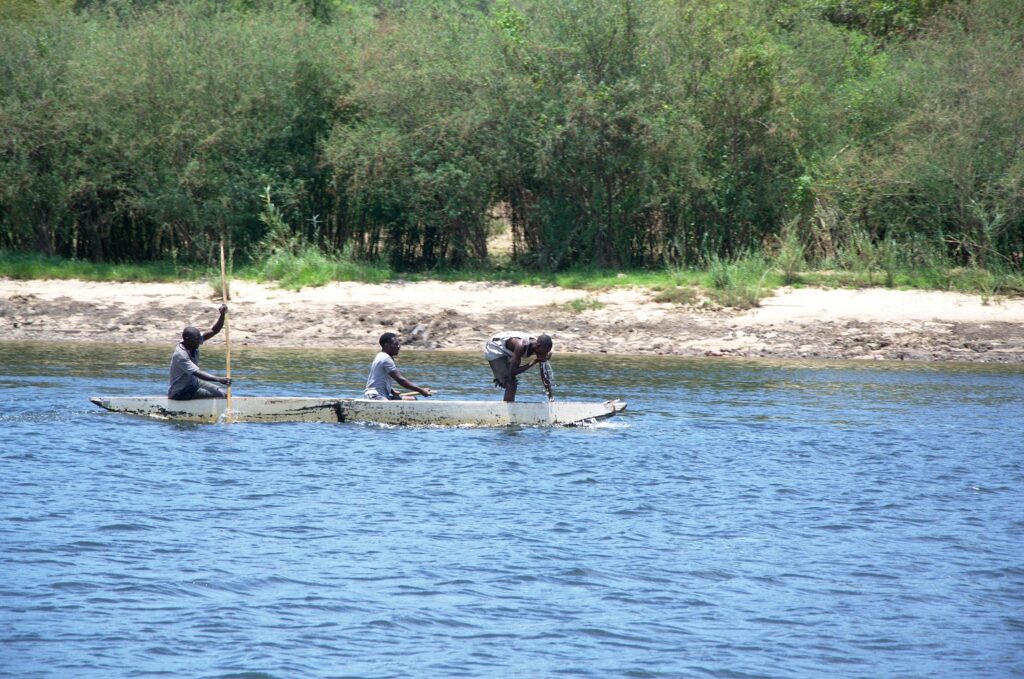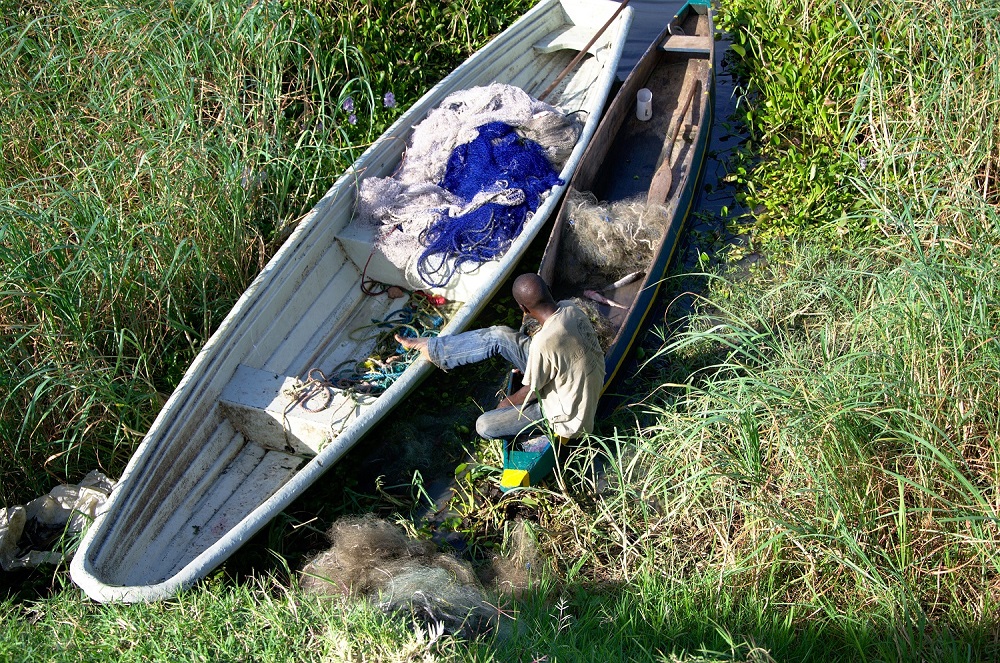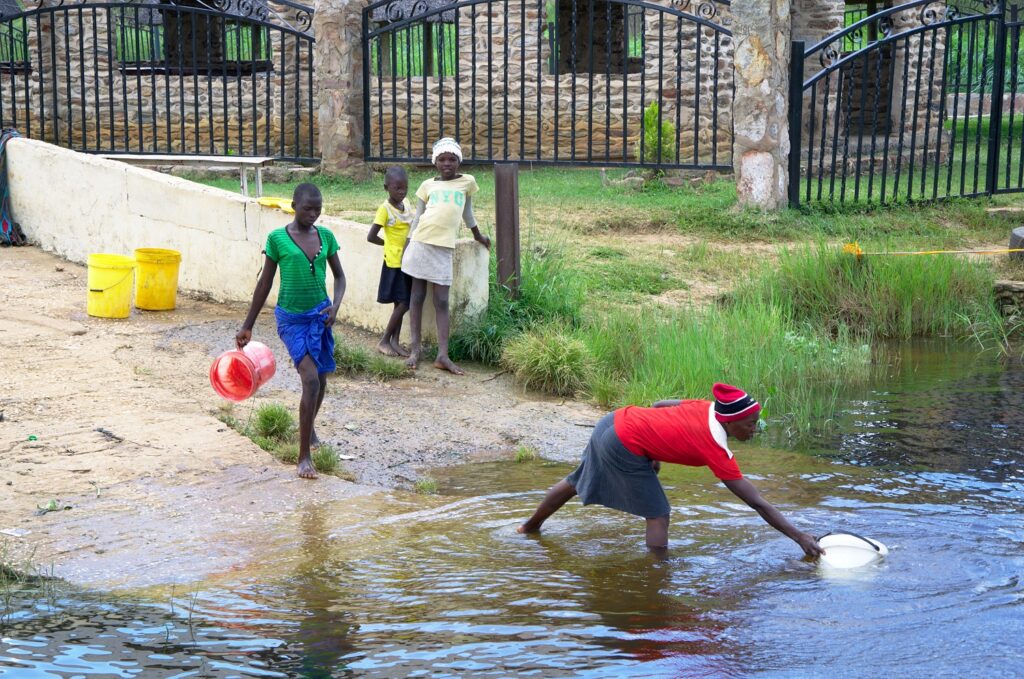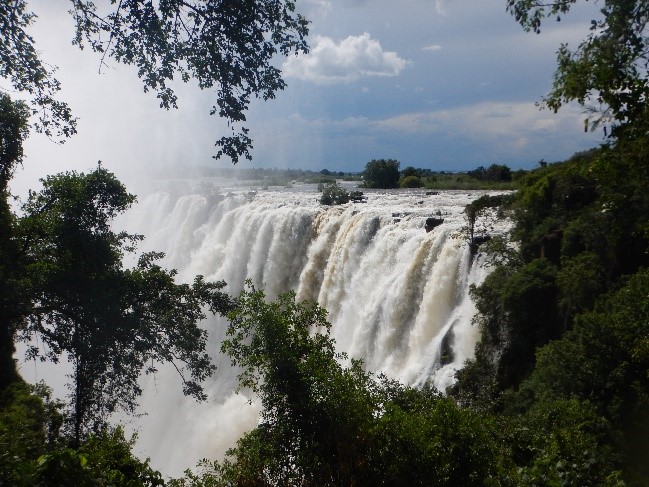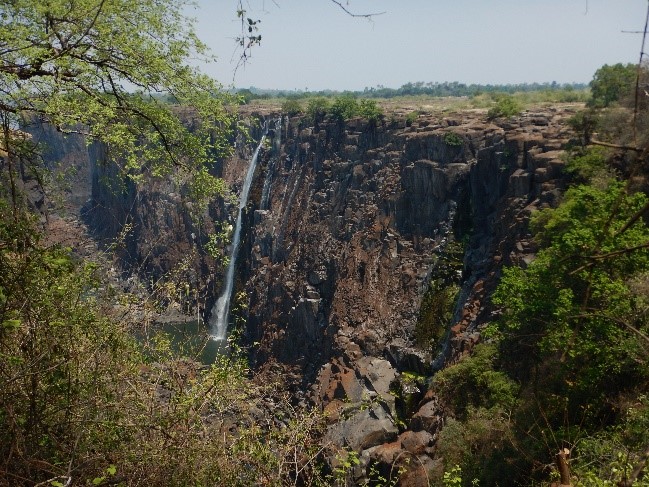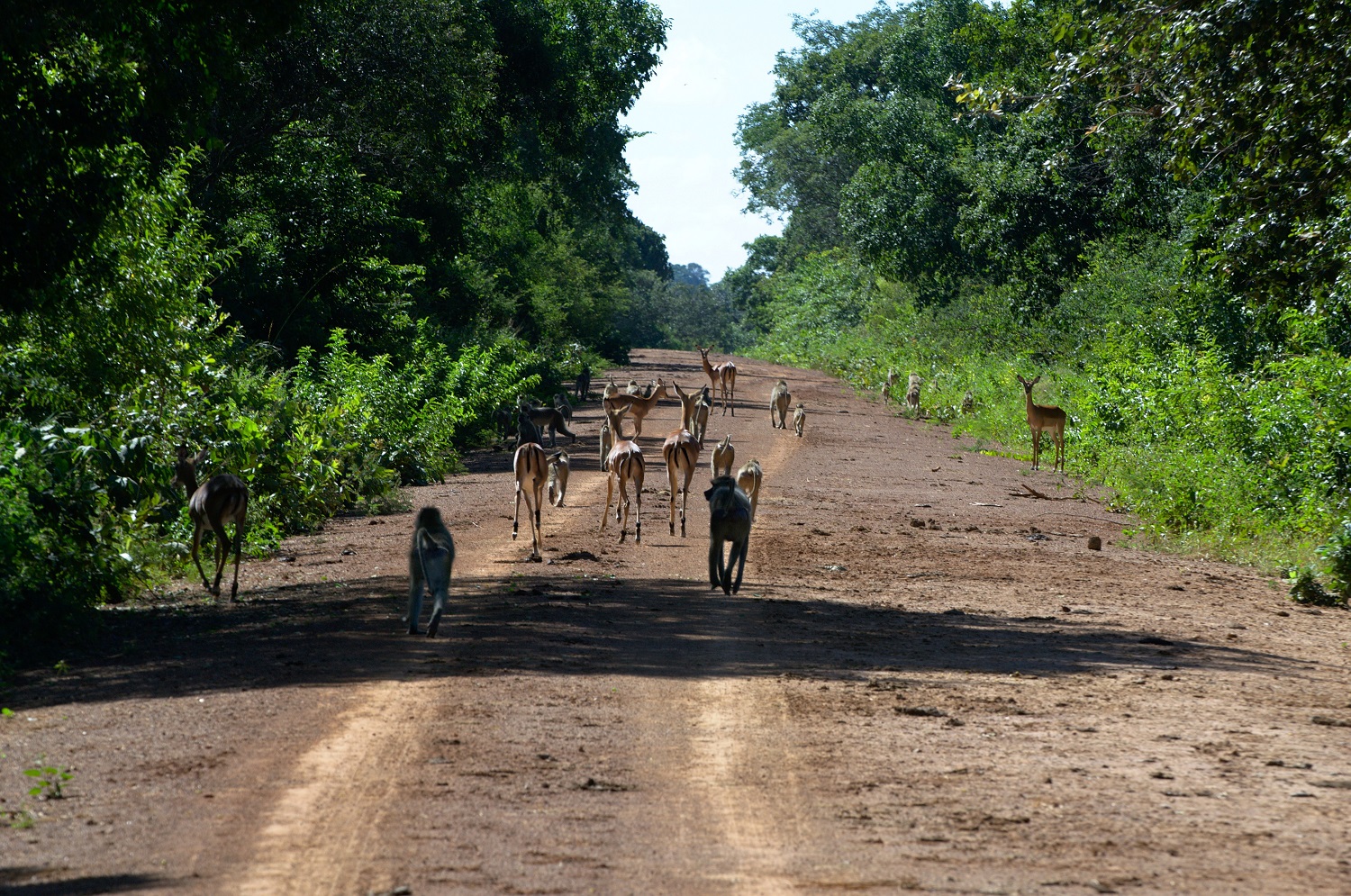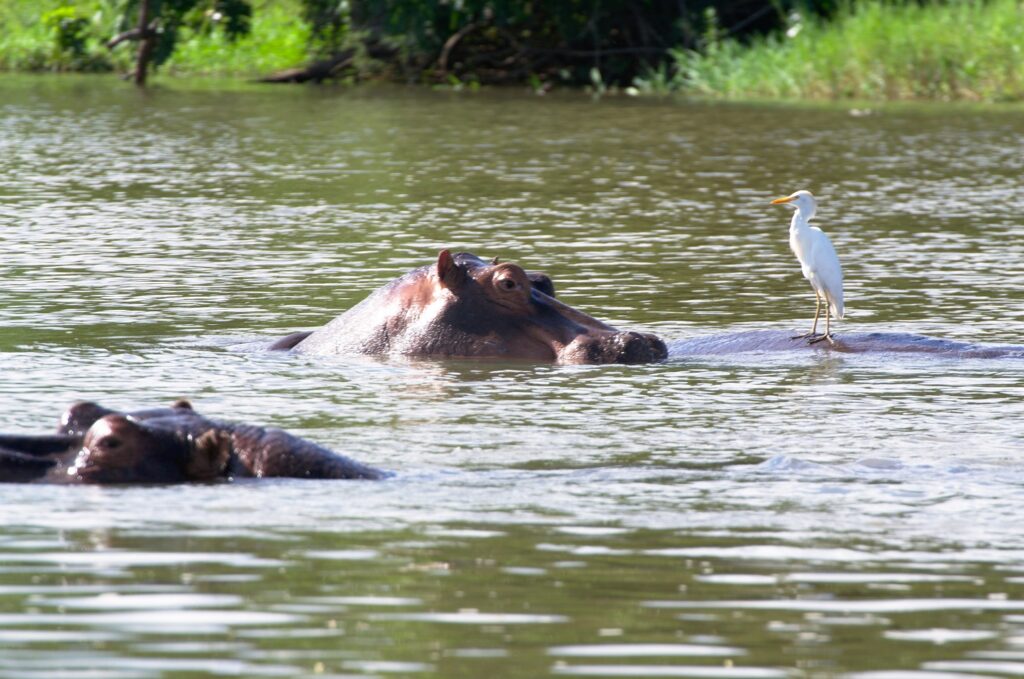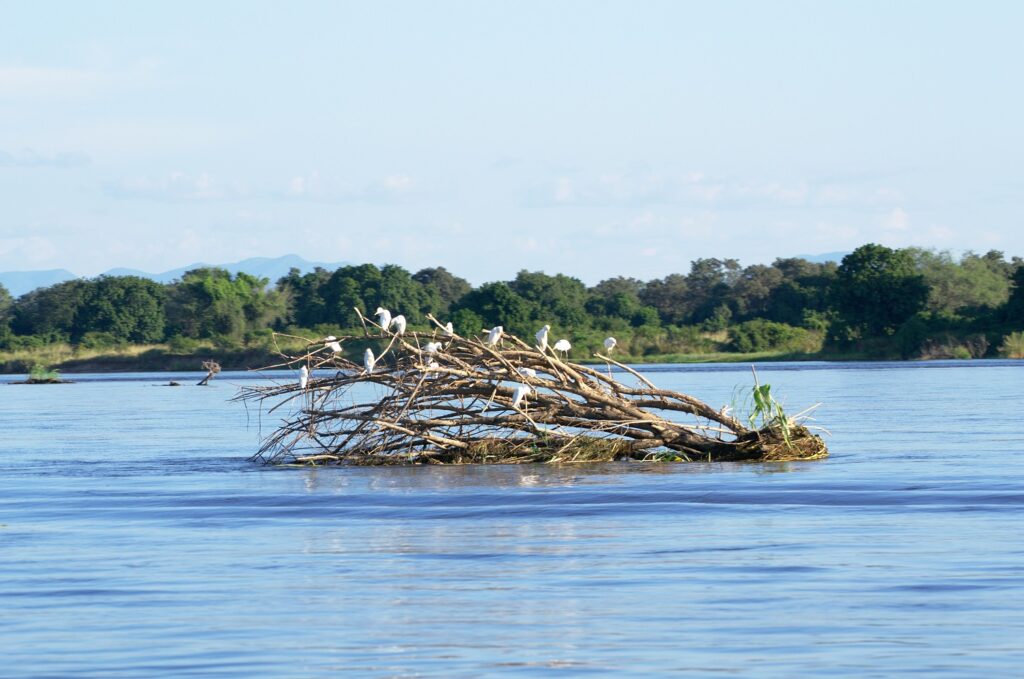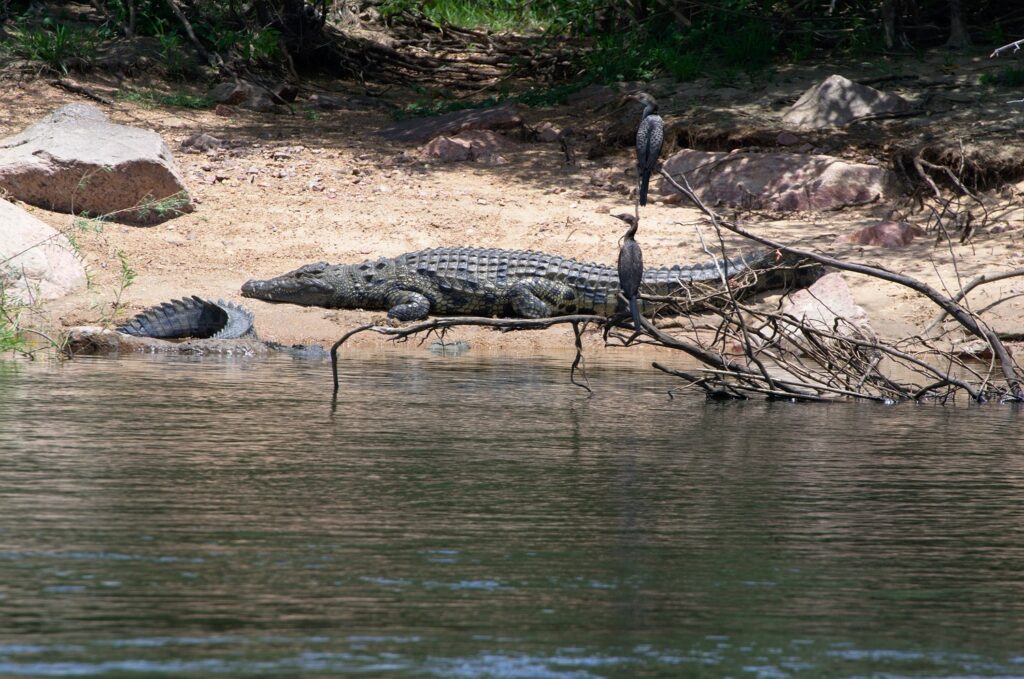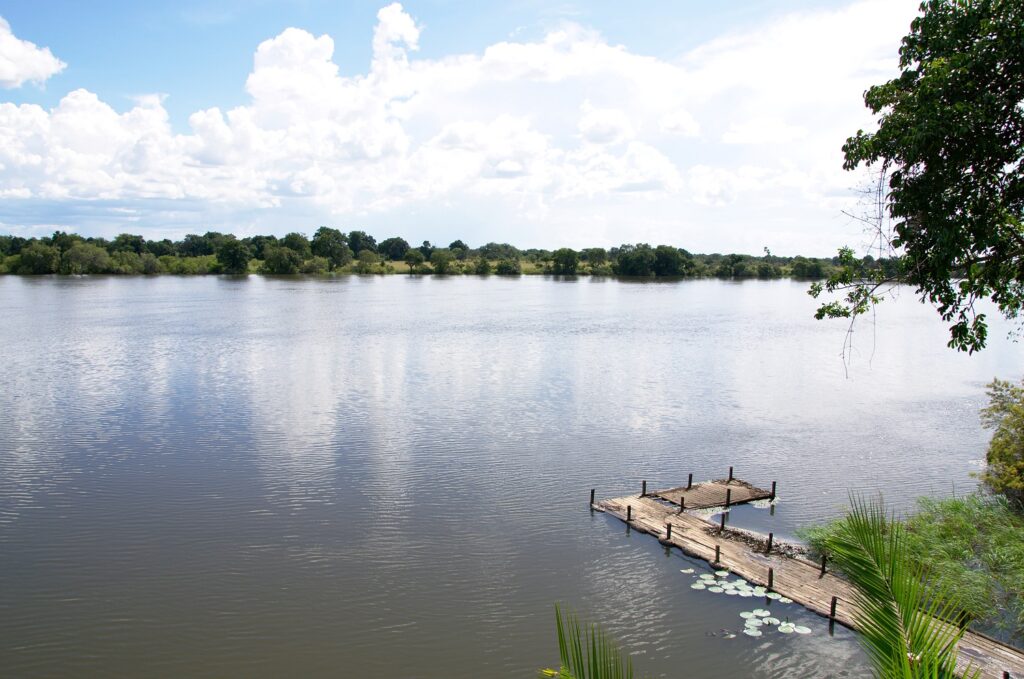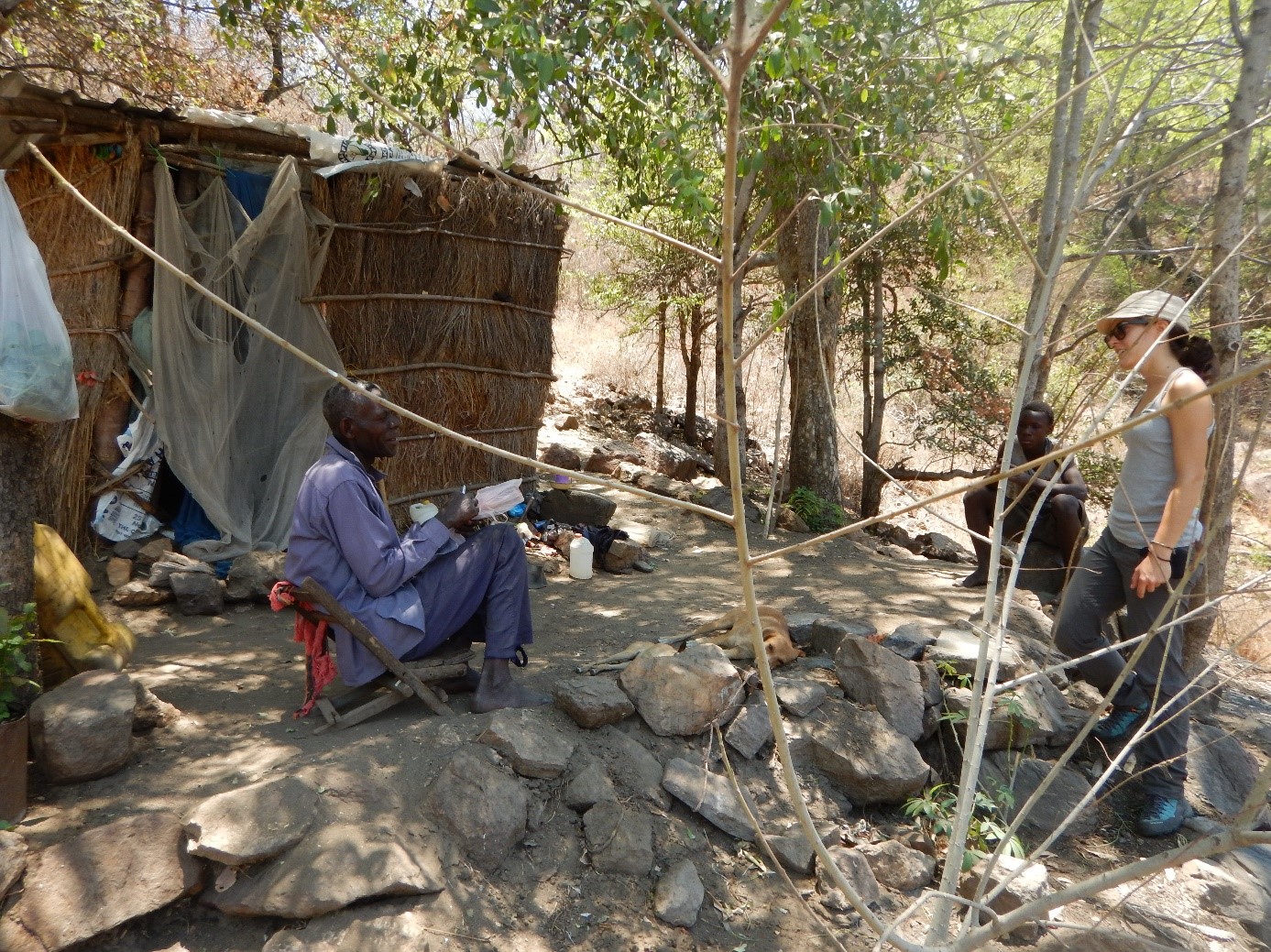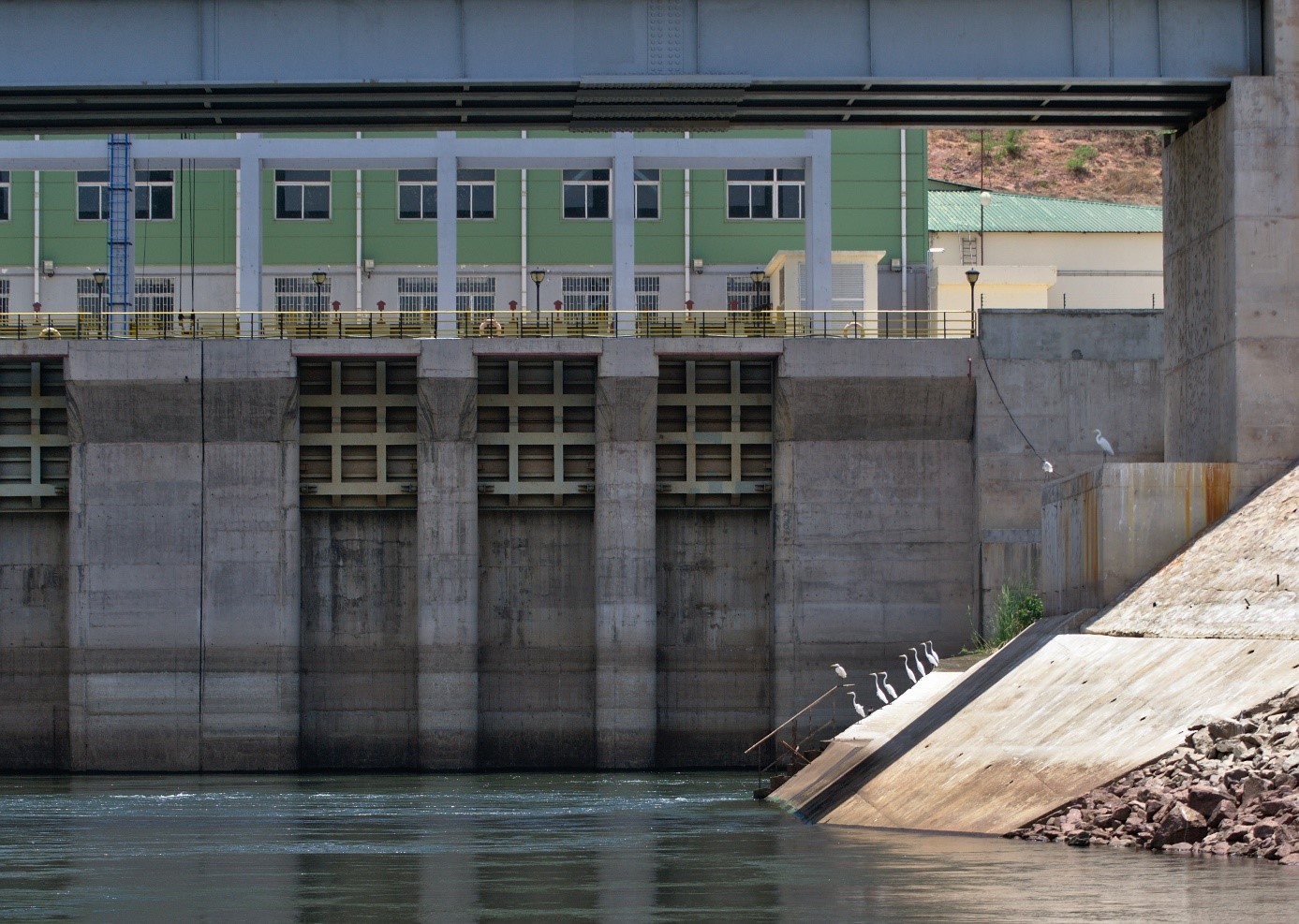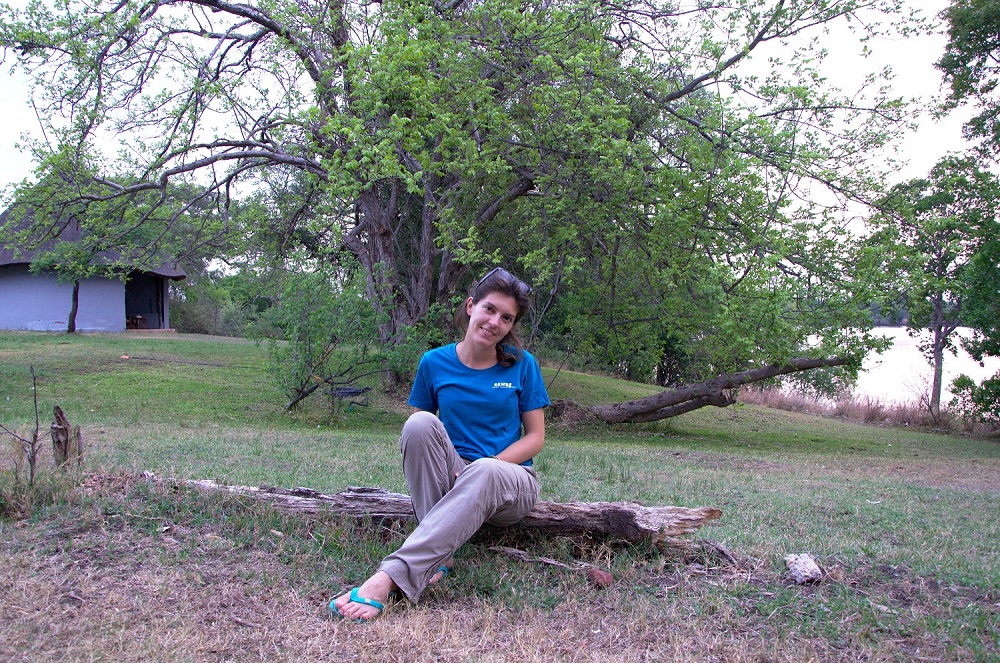I was not alone during such trips. I mainly travelled with Cristian Teodoru, an expert on water quality who is so experienced in the Zambezi River Basin that he is no longer considered a ‘musungu’ (white foreigner) by the locals. Working together, I learned a lot about fieldwork—fieldwork in the tropics in particular, focusing on precision in measurements and water quality issues. However, here I would like to tell you about another lesson I learned during my experience.
In Zambia, I became acutely aware that humans are just one of many species in this world. The perception of the natural world in our western countries is very different – we have cut ourselves off from other species. We are used to thinking about one species at a time, for example in the way that we think about different species in a zoo. In the Zambezi River Basin, many living species coexist and interact on a daily basis. Witnessing this coexistence of species brought with it a much broader range of emotions. I, for instance, had never felt ‘real’ fear of big animals before. Having a crocodile trying to hunt your water-collecting instrument, or having an elephant running behind our car was totally new for me.


